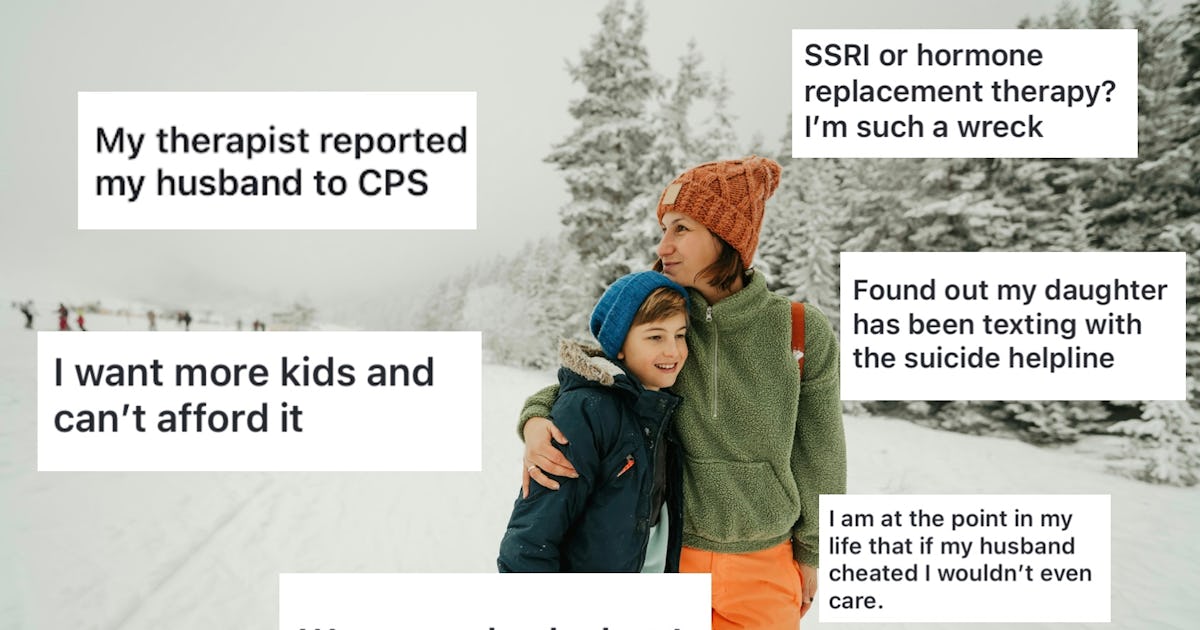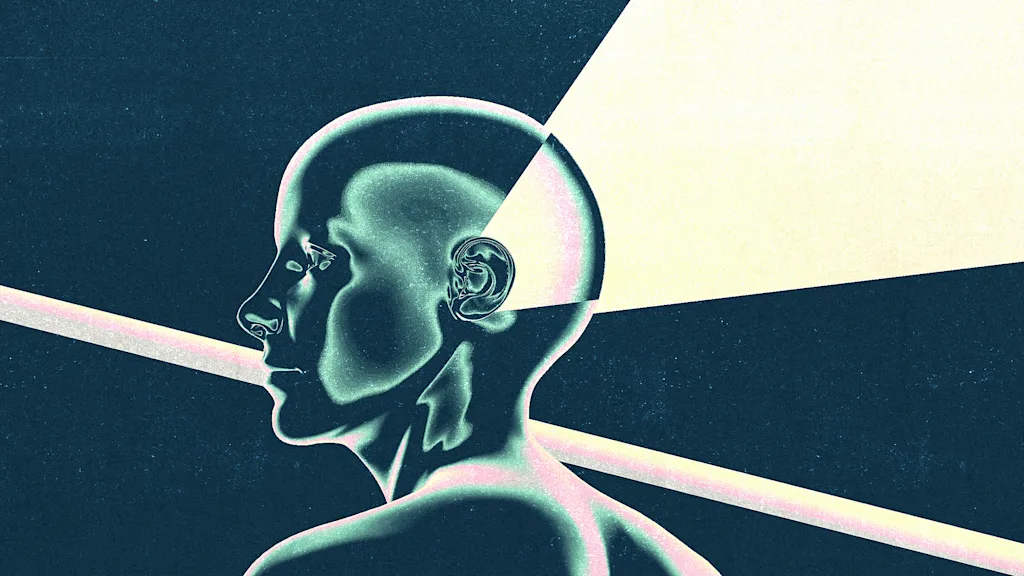#empathy
#empathy
[ follow ]
fromLondon Unattached
1 day agoThe Shitheads at the Royal Court New Theatre Review
The Shitheads is part period piece, part family drama and part allegorical epic. It unfolds at some time in prehistory (10,000 - 50,000 BC, to be exact). Nomadic hunter-gatherers coexist with a family of cannibalistic cave dwellers who justify their eating habits by dehumanising their human prey. Hunter-gatherers are 'shitheads', they say - inferior, stupid, without expansive interior lives. One of these cave-dwellers, a straight-talking fighter named Clare (Jacoba Williams - Vera), meets Greg (Jonny Khan - Statues), an endearing, simple-minded gatherer.
Film
fromFast Company
5 days agoWe're wired to sync with one another-and that shapes attraction, trust, and belonging
Bring two or more people together and they will immediately begin to synchronize or fall into rhythm with one another. Not only do we tend to subconsciously mimic one another's movements, postures, facial expressions, and gestures, but recent breakthroughs in technology have revealed we also sync up our heart rates, blood pressure, brain waves, pupil dilation, and hormonal activity. This phenomenon is known as interpersonal synchrony, and it is possibly the most consequential social dynamic most people have never heard of.
Psychology
fromSilicon Canals
6 days agoPeople who say thank you to service workers often have these 7 traits that are increasingly becoming rare - Silicon Canals
Last week, I watched a young guy at the coffee shop make the barista's entire day. Not with a big tip or elaborate compliment, just a genuine "thank you so much" and eye contact that said he actually saw her as a person, not just a caffeine dispenser. The barista's shoulders relaxed, her smile turned real, and suddenly the whole atmosphere shifted.
Silicon Valley
Parenting
fromSlate Magazine
1 week agoMy Son Has a Passion for Scaring My Daughter. He Thinks It's Hilarious. I'm Disturbed.
Frightening a sibling for amusement is unacceptable; remove the clown costume, teach empathy, require apology and reparative action, set clear boundaries, and supervise interactions.
fromSilicon Canals
1 week agoPsychology says people who can't start eating until everyone at the table has their food display these 7 highly desirable traits - Silicon Canals
I used to think it was just good manners drilled in by strict parents, but after interviewing behavioral researchers for a recent piece on social dynamics, I've discovered there's something much deeper at play here. This seemingly small gesture-waiting for others before diving into your meal-actually reveals a fascinating cluster of personality traits that psychologists link to both personal and professional success. The research suggests these patient diners aren't just being polite; they're demonstrating qualities that make them exceptionally good friends, partners, and colleagues.
Psychology
fromSilicon Canals
1 week ago8 signs your worst experiences actually made you a better person, according to psychology - Silicon Canals
Nobody tells you that getting laid off might be one of the best things that ever happened to you. When I lost my job during those brutal media industry cuts, I spent four months in my pajamas, eating cereal for dinner, and questioning every career choice I'd ever made. But here's the strange part: looking back now, that experience fundamentally changed who I am as a person. And I mean that in the best possible way.
Psychology
Online Community Development
fromCmxhub
2 weeks agoCMX Masterclass Recap: Embracing Conflict as Catalysts for Positive Change in Digital Communities with Gina Graziani
Conflicts in digital communities can be leveraged as opportunities for growth, fostering meaningful dialogue and inclusive spaces through a structured five-step conflict-resolution approach.
fromQueerty
2 weeks agoAsia Kate Dillon dishes on taking the lead in Outerlands, cinema's hottest sex scene & their most challenging role - Queerty
Tattooed on Asia Kate Dillon's neck is "einfühlung," the German word for empathy. Not only is it a pretty bad*ss tattoo, it's also a guiding principal for an actor who strives to be a conduit for empathy in all their work, whether they're playing an inmate on Orange Is The New Black, a high-powered enforcer in John Wick: Chapter 3, or a financial analyst in the Showtime drama Billions, where they made history as the first non-binary main character an a mainstream American TV show.
Film
fromFast Company
3 weeks agoI'm a tech CEO. Here's why my employees are required to work a restaurant shift
When I tell fellow tech executives that every employee at sunday, from our engineers to our finance team, must complete a restaurant shift before they can fully onboard, I usually get confused looks. "You mean like, shadow someone?" they ask. No. I mean they tie on an apron, take orders, run food, and yes, deal with the 15-minute wait for the check that our product was literally built to eliminate.
Tech industry
Arts
fromThe Art Newspaper - International art news and events
3 weeks agoThe Davos arts programme: 'Art ventures where policy briefs and position papers cannot go'
The Arts and Culture Programme at Davos positions arts as essential for fostering empathy, imagination, and collective action amid digital acceleration and societal polarisation.
fromPsychology Today
3 weeks agoWhy 'It Is What It Is' Can Feel So Dismissive
I say: "My son hasn't spoken to me for a long time." The response I get is: "It is what it is." I say: "I'm anxious about my blood test results." The response I get is: "It is what it is." I say: "Some part of me regrets never having had children." The response I get is: "It is what it is."
Psychology
Video games
fromwww.theguardian.com
4 weeks agoIt's a loving mockery, because it's also who I am': the making of gaming's most pathetic character
Baby Steps uses deliberate frustration and an inept, awkward protagonist to transform player irritation into empathy, identification, and unexpected affection.
Mental health
fromwww.theguardian.com
1 month agoThe kindness of strangers: alone in the crowd at Glastonbury, a stranger hugged me tight while I cried about my dead dad
A stranger's empathetic embrace at a U2 concert provided cathartic comfort after losing a parent, bringing unexpected peace during grief.
fromwww.standard.co.uk
1 month agoChildren as young as three learn to reject toxic masculinity at nursery and primary schools in London
They are taught no emotional reaction is bad and to speak up about anything that makes them uncomfortable, including hugs. As a result, St Saviour's doesn't have any permanent exclusions and a lower rate of suspensions. Over 9,000 London schoolchildren are receiving lessons up to three times a week on respect, kindness and how their actions make others feel. The project is designed by the global education specialists, Think Equal.
Education
fromwww.psychologytoday.com
1 month agoWhy a 1% Shift Is All It Takes to Improve a Relationship
Empathy flourishes in relationships that feel safe and nonjudgmental. The human brain resists large demands but cooperates readily with small, manageable ones. When the goal is too big, motivation collapses under the weight of expectation. But when the goal is tiny, the nervous system relaxes long enough to try. When a relational goal feels too big or too inauthentic, the nervous system can perceive it as a heavy load and shut down in response.
Relationships
fromwww.theguardian.com
1 month agoKindness of strangers: I was ill and about to miss my flight when a well-dressed man helped me to the airport
I ordered another taxi and made my way out to wait in front of the motel, in despair that I might miss my flight. I stood on the dark footpath and spoke on the phone to my sister in Queensland about how I had missed my taxi and how unwell I felt. My health condition can affect my ability to think clearly, and I was telling her how my brain just wasn't working that day.
Health
fromPsychology Today
1 month agoMartin Luther King Jr.'s Most Urgent Question
In another, adapted from Theodore Parker, a 19th-century abolitionist preacher, Dr. King points to another aspect of his dream. King writes, "The arc of the moral universe is long, but it bends towards justice." The first quote points to individual behavior, the second toward social action. Dr. King didn't emphasize one approach over the other. For him, personal and social morality were of a piece. A good world is one that is both kind and just.
Philosophy
fromPsychology Today
1 month ago3 Ways Improv Helps Build Leadership Skills
In making an idea together, you are trying to build a shared reality. We are both building a non-existent thing. Because improvisers are creating something out of nothing, they are forced to listen to each other, to pay attention, in a deeper way than in their ordinary lives. People can make assumptions and skim over details in their day-to-day lives, but while improvising, they have to catch every word and even catch details that go beyond their partner's words.
Mindfulness
fromPsychology Today
1 month agoWhy Listening to Your Heart Can Make You a Nicer Person
You might say that people who are agreeable are not only kind but also able to zero in on the emotional needs of others. Step one in being kind does seem to need this ability to empathize. According to North Dakota State University's (NDSU's) Michael Robinson and colleagues (2025), unlike the other FFM traits, agreeableness has an emotional component. In their words, "trust, warmth, compassion, and friendliness... seem to require a feeling component to be enacted successfully."
Psychology
fromPsychology Today
1 month agoPrinciples of Dialogue and Reasoned Argument
In previous posts, I argued that empathy, expressed in different ways-as feelings of compassion, an abhorrence of cruelty, and a wider circle of concern-is the core of a liberal worldview and a liberal political philosophy. I added, however, several important caveats: Liberals are not always empathic, conservatives are not always callous, and policies animated by empathy are not always wise.
Philosophy
Relationships
fromwww.theguardian.com
1 month agoHow do I talk to my conservative grandsons who dismiss my politics as fuzzy thinking? | Leading questions
Political disagreement often arises from differing firsthand experiences; communicate concrete lived realities calmly and respectfully, prioritizing shared respect and connection over winning arguments.
fromBig Think
2 months agoHow life changes when you start embracing mystery
I wanted to say three extemporaneous things before I launch it in my prepared comments. The first was I wanted to thank Freethink and the Templeton Foundation. What an amazing night. I mean, I'm, I'm just like so impressed and moved and, you know, the last act, I just, I sort of wish I was on mushrooms now, and when they asked me to do this, I thought, yeah, sure.
Film
fromPsychology Today
2 months agoThe Art of Emotional Generosity
Customarily, any reference to generosity brings to mind a magnanimous propensity for giving material gifts. Flowers, trips, money, or an automobile can be expressions of generosity. However, it may be extremely limiting to understand generosity as the offering of material gifts. Emotional generosity can be highly supportive of creating emotional intimacy in a committed relationship. Or it can be a dynamic energy that fosters greater rapport at work.
Relationships
fromFast Company
2 months agoA Delta flight was landing late and passengers were anxious. What the flight attendant did next was brilliant
Now, everyone who has their hands up: Imagine the anxiety you'd feel if you had to catch another flight tonight and weren't sure you'd make it. Put your hands down. And now, those connecting to San Francisco, Palm Springs, and Denver, raise yours!
Business
fromPsychology Today
2 months agoThe Psychology of Feeling Heard
In 1968, just months before his assassination, Martin Luther King Jr. looked out at burning American cities and gave an assessment of what he was really seeing. "In the final analysis, a riot is the language of the unheard," he said. King wasn't excusing violence. He was diagnosing the problem as something even deeper than disagreement over politics or values. Beneath the unrest, he saw the pain of people who had been speaking for a very long time, and who felt that no one in power was listening.
Philosophy
fromPsychology Today
2 months agoWhy Do We Love the Drunken Raccoon?
Why do so many of us love the passed-out raccoon in the liquor store bathroom? That fuzzy little body stretched out on the bathroom floor after a full-force face plant in between a trash can and the toilet pulls at our heartstrings. He looked vulnerable. We all know he was going to have an absolute whopper of a hangover. My head started pounding, and my stomach started churning in solidarity.
Food & drink
fromwww.nytimes.com
2 months agoVideo: A Singular Character | Karl Ove Knausgaard
I'm going to ask you to describe this man in as much detail as you can. What's the most distinctive feature on his face? It would be the eyes. He's called Kristian Hadeland. Twenty years old. Narrow eyes, high cheekbones. He's a photographer, wants to be a photographer. And he is ruthless, obsessive. He wants to be an artist for whatever price it takes. There's something that kind of releases all of that and he's very successful.
Books
fromPsychology Today
2 months agoHow to Shift From Cynicism to Grounded Hope
When in my 20s, I equated hope with "sunny-side-of-the-street" wishful thinking-what we now call " toxic positivity." I was wrong. I live, work, and lead these days with a new kind of grounded hope. Many thoughtful, intelligent people today are sliding toward cynicism. But recent research shows something surprising about the nature of hope in the face of cynicism. I want to share research conducted on cynical college students-and how that research shifted the outlook even of the chief researcher.
Psychology
fromwww.housingwire.com
2 months agoWhy most agents lose clients in the first five minutes and what top performers do differently
He didn't establish trust. The seller was a retired teacher with a warm face and a nervous smile. Before she could offer him a seat, he opened his folder and began discussing median prices and days on market. She nodded, but her eyes drifted into that polite, distant look every agent has seen. In that moment, the listing was already gone not because of the information, not because of the strategy, but because the seller did not feel seen.
Real estate
Artificial intelligence
fromBusiness Insider
2 months agoMicrosoft CEO says empathy is a workplace superpower in the age of AI: 'IQ without EQ, it's just a waste'
Emotional and social intelligence become critical workplace skills as AI automates technical tasks, while human collaboration and leadership shifts support Microsoft's AI ambitions.
Mental health
fromeLearning Industry
2 months agoBuilding Empathy In Distance Learning: A Practical Guide For Students, Teachers, And Institutions
Empathy in distance learning reduces stress, improves focus, prevents miscommunication, and fosters supportive online communities through intentional practices.
[ Load more ]

















